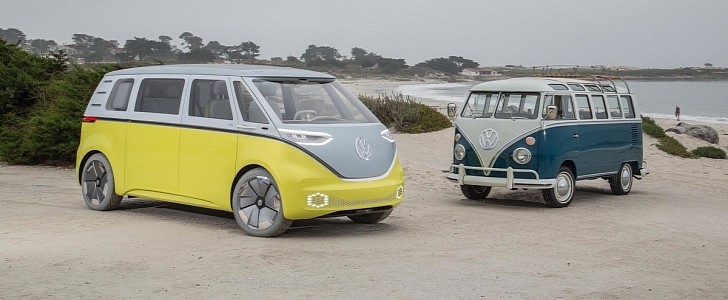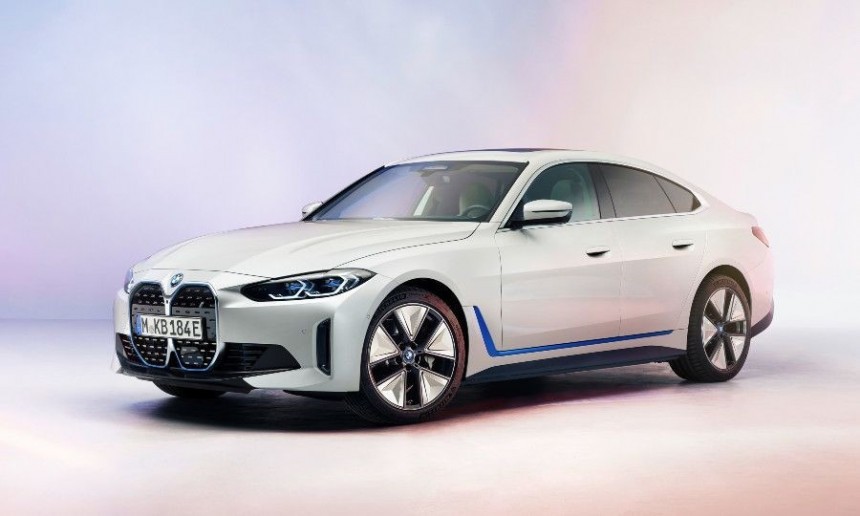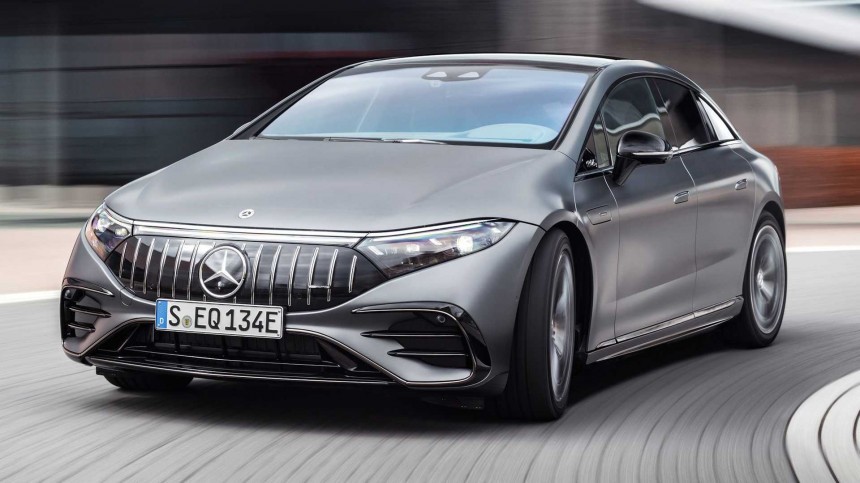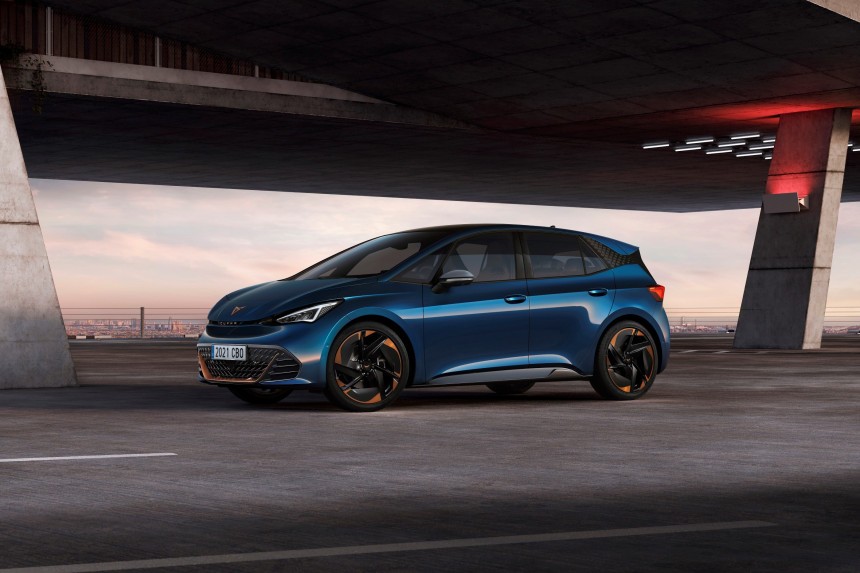European carmakers have everything, from know-how to brand recognition; yet, they were not that fast on switching to electric-only vehicles, but when they focused on them, the results followed fast.
From Audi to Volvo, which is a European nameplate under Chinese ownership, the Old Continent carmakers are shaking their CEOs to make a decision. Engineers in their R&D departments are burning the midnight oil to create new cars, and they are doing that while they have already achieved Level 3 autonomous driving systems. Of course, for now, we only saw their pricier brands going the EV route. Yet, some of their cars might land on American shores with lower prices.
BMW pioneered hydrogen-powered cars, where it used hydrogen to burn inside the cylinders of a 7 Series limousine. So maybe it didn't quit on that idea, but for now, the hydrogen solution doesn't seem to have as many supporters as BEVs do. Meanwhile, BMW is ready to show the i7 electric flagship model.
On the performance side, it already launched the Mercedes-AMG EQS 53 4MATIC+, which might snap your head while accelerating and bruise your chest when braking. It aims at Porsche Taycan customers, but with a higher price, better equipment, and more luxurious interiors.
Dacia is a Romanian brand owned by Renault, and it's suitable for "let's make it cheap" experiments. How cheap? Well, think about $24,000 for a 145-mile (234 km) range vehicle thath you can fully charge at home.
After a few SUVs, the four-rings brand announced the future of its cars with the Grandsphere concept. So, its plans are coming through. Also, let's not forget that the Volkswagen Group tests new technologies on its lesser-known brands such as Skoda or Cupra.
Being part of the same company, Bentley will also switch to electric powerplants. Porsche already proved its value with the Taycan, and Volkswagen is preparing the I.D. Buzz minivan, which is based on the new MEB platform designed for electric vehicles.
Sure, we're all facing new challenges for the electric cars of tomorrow. There are still not enough charging stations, and the electricity is not completely produced in environmentally-friendly ways. But, at least, we won't have the same smog in the cities and into our lungs. So, enjoy your gas-powered car while you can. I know I do! Sooner or later, we'll have to join the buzzing revolution.
BMWi
BMW didn't want to affect its existing customers and launched a new sub-brand named BMW i, which focused exclusively on hybrid and electric vehicles. After the i8 and i3, it continued with the newer generations. The carmaker also went through some hard times with its plug-ins, which didn't work too well. At least, its engineers learned how to make them right, eventually. But their lessons will serve mostly for the BEV range since the German carmaker has already announced that it will quit developing vehicles that use fossil fuels soon.Jaguar – Land Rover
These British brands owned by the Indian group Tata Industries don't seem too concerned about electric-powered vehicles. Sure, it electrified some vehicles, offers plug-in hybrids, and a fully electric vehicle, the Jaguar iPace, since 2018, a crossover that won the 2019 World Car Of The Year title. Moreover, it signed the Glasgow agreement and promised to switch to 100% electric Jaguars by 2025. As for LR, well, that will be a difficult problem. Sure, it can make the Evoque fully electric, but it will be a long road to make a battery-powered Range Rover or a Defender.Mercedes-Benz
Mercedes-Benz was slow to react to the BEV technology as well, but once it started, it accelerated fast. Unlike BMW, it stuck to the same three-star badge and name for the new electric vehicles but used the EQ nameplate for them. Thus, cars like the EQS, EQE, and EQB appeared on the market. Since it has already gained momentum, it may continue with the other vehicles from its range from the compact, crossover, and SUV segments.Renault-Nissan
Nissan was one of the pioneers of electric mobility with the Leaf back in 2010. Kudos for that! Even though many people laughed at them, nowadays, the Leaf is bigger, offers a way better range and a high-tech-packed interior. Who's laughing now? On the other hand, Renault already gained momentum with the Zoe, which offers a respectable 250 miles (400 km) range, and with the most affordable electric car on the European market, the Dacia Spring.Dacia is a Romanian brand owned by Renault, and it's suitable for "let's make it cheap" experiments. How cheap? Well, think about $24,000 for a 145-mile (234 km) range vehicle thath you can fully charge at home.
Volkswagen Group
The German carmaker is already on the verge of having an entire electric-powered lineup. It started way back with the A3 e-tron in 2013. It was a plug-in hybrid since it had to overcome the range anxiety. After some bumps on the way, it convinced customers to purchase the car, and, in 2018, the plug-in hybrid was withdrawn since the carmaker focused more on BEV technology.After a few SUVs, the four-rings brand announced the future of its cars with the Grandsphere concept. So, its plans are coming through. Also, let's not forget that the Volkswagen Group tests new technologies on its lesser-known brands such as Skoda or Cupra.
Volvo
Part of the Geely group, the Swedish brand already has the know-how to build BEVs. It proved it with the electric-only Polestar brand, but it hasn't lost the internal-combustion engines yet. It also has plug-in hybrids with enough range to commute on fully electric mode, and you don't need to see your office building from your backyard for that. Still, some issues are to be solved, but it promised at Glasgow to deal with all the problems by 2030 and eventually say goodbye to internal combustion engines.Sure, we're all facing new challenges for the electric cars of tomorrow. There are still not enough charging stations, and the electricity is not completely produced in environmentally-friendly ways. But, at least, we won't have the same smog in the cities and into our lungs. So, enjoy your gas-powered car while you can. I know I do! Sooner or later, we'll have to join the buzzing revolution.











